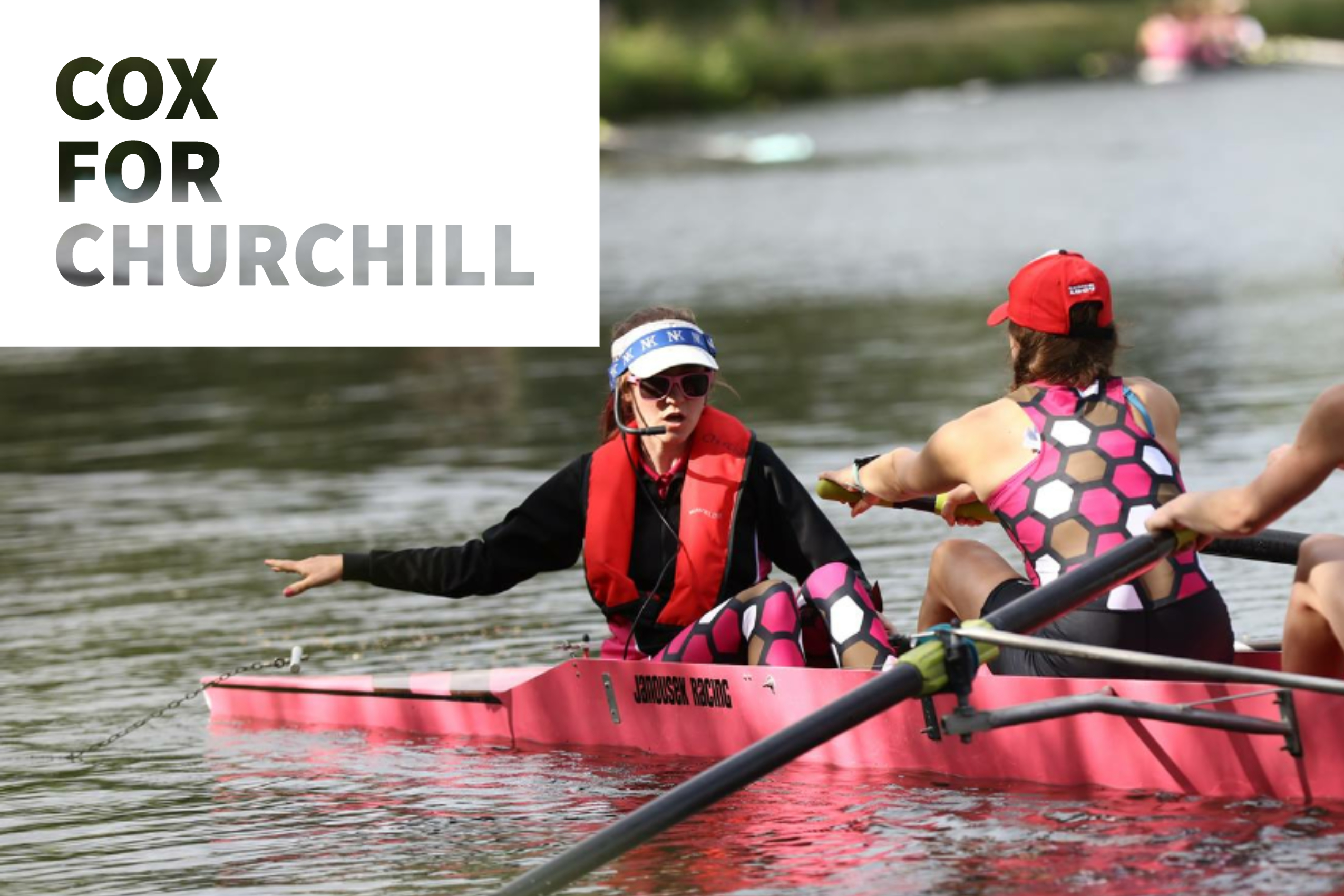What is a cox?
Very simply, a cox is primarily the person responsible for steering and coordinating the rowers in larger rowing boats (Fours and Eights) to keep them safe. Almost all of the rowing competitions in Cambridge are for Eights (boats with eight rowers) and so coxes are an essential part of Cambridge rowing.
Beyond the basics of safe steering, coxes have a role in coordinating the training during water sessions with a coach; coaching and motivating the rowers and are in charge of any tactics in a race.
There’s nothing really comparable to it. It’s a bit like conducting a group of musicians, while racing a car – you have to make sure the rowers are technically working well together, while safely steering the fastest possible route to beat others rowing boats.
Here’s a short example from the view of one of our coxes from a Cambridge bumps race (make sure the sound is on)…
Why should I cox?
It can teach you brilliant transferable skills for any career:
- Leadership skills: you are responsible for several other people – the rowers
- Coping under pressure: there’s nothing quite the pre-race adrenaline rush, particularly before bumps
- Speaking clearly and succinctly: coxing requires you to get rowers to all do the same thing at the same time, which requires you to be very clear in what you are asking
- Motivational speaking: you’ve got to persuade four or eight people to carry you and each other as fast as possible to win, which means making them exhaust themselves for you!
It also gives you great socials and often eight great people to get to know who are brilliant!
Check out our general rowing FAQs for answers common rowing questions (such as about early mornings and time commitments)
Here are some answers to coxing specific questions…
But I’m not very loud/I don’t like talking to people…
You don’t have to be the chattiest person to cox. Firstly, you wear a microphone so you don’t have to shout much. Also, good coxes are succinct and clear, and give the rowers time to think about what they are doing: talking too much can be as bad as talking too little! There are also set phrases to use to cover the basics commands and you can build up how much coaching/motivation you do as you get more confident. The most important aspect of coxing is steering and coordinating the rowers safely. One of our most experienced coxes refused to say anything beyond the bare minimum to start with and is now involved with the University teams!
But you don’t do any exercise?!
Not directly. You also have fewer compulsory sessions than the actual rowers! You are therefore welcome to join in with their land training sessions (indoor rowing, weights, circuits), or use this ‘free time’ to do your own form of exercise. If you don’t like doing sport, you don’t have to! It’s a great way of still being part of the Cambridge rowing scene and it’s traditions.
Don’t you have to be really small?
Not at all! As long as you’re keen and get into the boat, then you can cox! At an elite level smaller coxes are preferable as they are generally lighter (and so the boat should be faster relative to a larger cox), but at Churchill the difference in size is pretty negligible. A cox who can improve quickly and is safe, is better than a cox who is simply lighter. In fact, the cox of the men’s first boat in 2018 was over 6 feet tall!
Doesn’t a cox just steer? Isn’t that a bit boring?
A good cox can coach, motivate, think about tactics and steer all at the same time, which us a lot to do all at once! Often it’s too much to think about in one go.
In all fairness, coxing is as interesting as you make it. There’s always something you can do to improve as often different things motivate different rowers, different rowers have different rowing problems and different rowing locations require different ways to steer. Of course all of that is after you’ve learnt how to cox in the first place.
Any other questions?
Please get in contact with our coxing representative, via our committee page!

